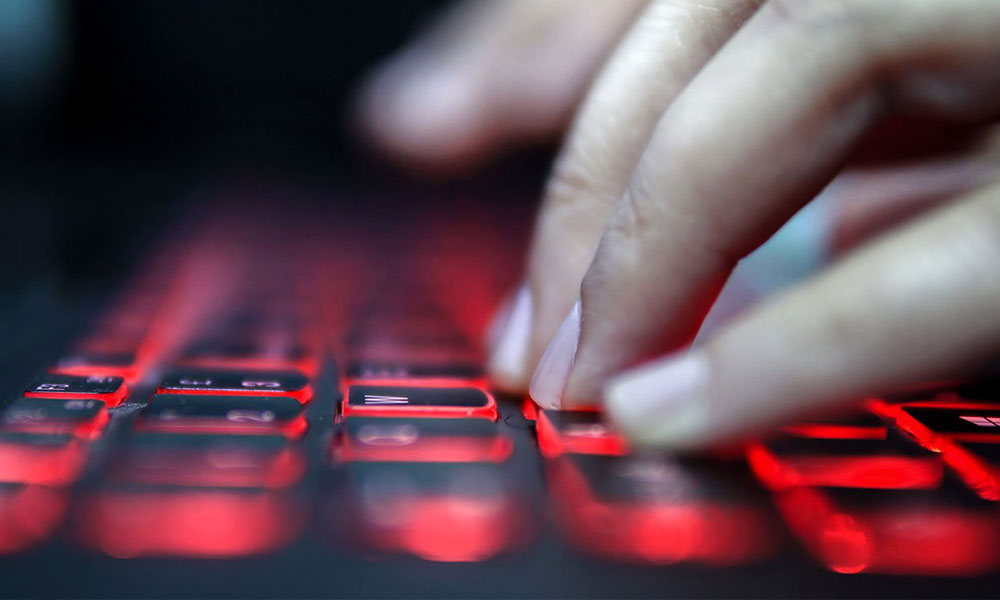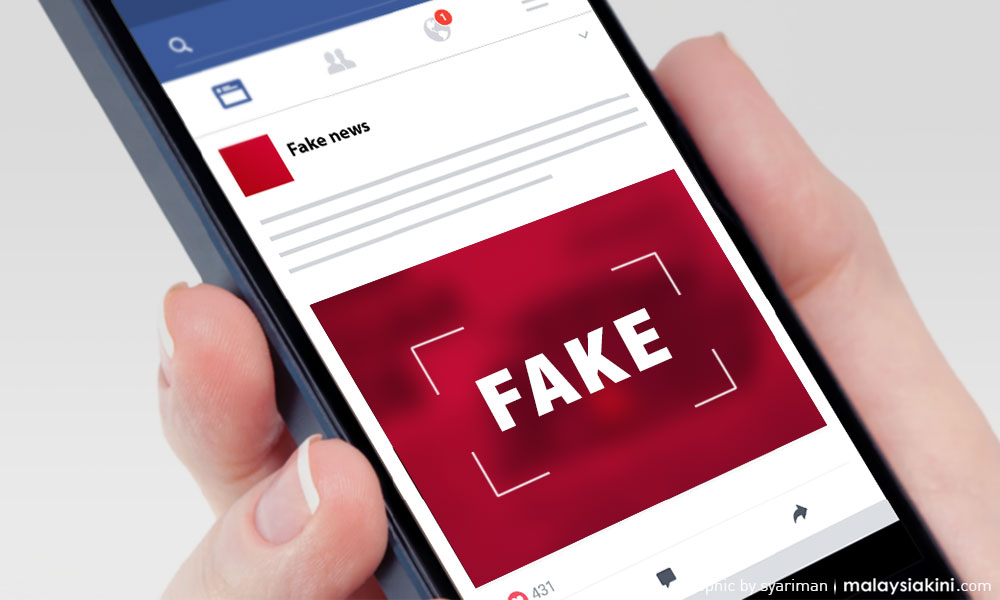MP SPEAKS | Okay people, you heard Senior Minister Ismail Sabri Yaakob. Deleting fake news and public apologies will not get you off the hook.
Even a United Nations body made a strong statement about this when the United Nations Educational, Scientific and Cultural Organization declared that “fake news” is putting lives at risk. They call this “new avalanche of misinformation” a “disinfodemic”.
We’ve seen a lot of fake news in the last month. How many times have you received viral messages/documents/images via phone apps and social media only to find out a couple of hours later that it is untrue? Fake information on road closures, fake statistics, fake letters using official letterheads, fake photos, fake allegations against individuals, institutions, the list goes on.
What’s ironic is that while the government, public sector and NGOs are working 24/7 to save Malaysian lives, the stay-at-home keyboard warriors are also working around the clock to discredit the government or individuals at every opportunity. Alas, some Malaysians choose to use this valuable time at home to create chaos, confusion and disharmony.
In hindsight, it was premature of the Pakatan Harapan government to repeal the Anti -Fake News Act (2018) without a substitute act. Creating and disseminating fake news is in effect, a harmful and dangerous borderless crime.
It would certainly help if government agencies can safely assume that important information is being disseminated to the rakyat and not distorted by pesky, irresponsible social media users, henceforth known as "cyber-covidiots".

Which brings me to my favourite movement control order (MCO) subject matter – law and governance in times of covid-19.
I have been closely monitoring legislative changes in other countries in the last couple of weeks. Some governments have proactively enacted emergency legislation such as the Covid-19 (Temporary Measures) Act 2020 (Singapore), UK Coronavirus Act 2020, the Coronavirus Economic Response Package Omnibus Act 2020 (Australia), and Covid-19 Response (Urgent Management Measures) Legislation Act (New Zealand) to name a few.
These are legislations and special measures bills with specific timeframes are critical enablers in facilitating national response to the global pandemic.
In the absence of new legislations or temporary bills in Malaysia, we work within the constraints of existing laws in managing the many challenges Covid-19 presents.
So, coming back to fake news and keeping cyber-covidiots in check, I thought I’d share with the public the list of legislations which can be enforced against people who initiate and viral potentially harmful information. Some of the laws which govern both offline and online speech and behaviours include:
- Section 124H of the Penal Code: Dissemination of information with the view to incite violence, or counsels violent disobedience to the law or to any lawful order.
- Section 124I of the Penal Code: Dissemination of false reports.
- Section 298A of the Penal Code: Causing disharmony, disunity, or feelings of enmity, hatred or ill-will, or prejudicing the maintenance of harmony or unity, on grounds of religion.
- Sections 499 to 502 of the Penal Code: Criminal defamation.
- Section 504 of the Penal Code: Intentional insult with intent to provoke a breach of the peace.
- Section 505 of the Penal Code: Statements, rumours or reports which are intended or “likely to cause fear or alarm to the public”.
- Section 8A of the Printing Presses and Publications Act 1984: Offence to publish false news.
- Section 211 of the Communications and Multimedia Act 1998: Prohibition on the provision of offensive content.
- Paragraph 4(1)(c) of the Sedition Act: Seditious publication.
As you can see, there are many existing legislation in Malaysia today that can be utilised. However, are they sufficient to address the harms caused by the spread of online falsehoods/fake news/disinformation/false information? The Anti-Fake News Act 2018 to a certain extent, did address these concerns.
Both legal and non-legal steps needed
With the rapid development of the technology, software bots can create accounts on social media platforms that act like and interact with the accounts of real people. These bots can be used to spread spam and online falsehoods on social media networks.
Apart from social media, online falsehoods can also spread through search engines, email chains, direct links to websites and instant messaging. How about deepfake technology in social engineering scams? Scary isn’t it?
What’s more, there is a high requirement of “mens rea” (criminal intent) under the existing laws which makes it difficult to secure a conviction, and there is no provision to punish financial providers in support of fake news due to political or economic reasons.

Existing laws do not provide for interim measures on how to remove the fake news from the respective platforms or punishments if we don't comply with the measures. Ever tried reporting to Facebook, Instagram et cetera? I know someone who had her identity stolen for catfishing which went on for years. In 2019, she made official reports to the MCMC and police. No action has been taken to date.
This is all academic, but I also want to moot for non-legal measures to control fake news "disinfodemic". This can include the establishment of a National Cyber Space/Security Alliance (NCSA) to build strong public (state actors) and private partnerships including the civil society organization (non-state actors) with the view to create and implement broad-reaching education and awareness efforts (including effective campaigns), as well as empower all users on the responsible use of social media as well as encourage a culture of shared responsibility.
We could also develop a national social media framework to provide guidelines for a cohesive and safe use of social media nationally. A media literacy strategy would be useful to promote media literacy for online platforms, news publishers and broadcasters, CSOs and academics and help to identify gaps in provision and opportunities for more collaborative working.
It is important to implement both legal and non-legal measures simultaneously. In the next few months (and maybe more), the authenticity of key messages from public health authorities and law enforcement agencies to the rakyat must not be compromised, or even worse, sabotaged.
Fake news threatens the wellbeing of our citizens, trust in journalism and democracy itself. It has never been more important to ensure that the people also have the literacy skills they need to succeed and thrive in the digital age.
New legislation is not the only answer, rather people/users need to be "educated" about their social media responsibilities, and providers need to take more ownership of users’ online activities.
Lastly, a Parliamentary Select Committee is needed to assess the possibility of restoring the Anti-Fake News Act, with new amendments if necessary and inclusion of non-legal measures. Let’s provide a fair and just platform for all stakeholders to present their views and jointly agree on the best approaches, without violating the rights to freedom of speech and expression.
Meanwhile, don’t be a cyber-covidiot. Be a “responsible sceptic” by using basic common sense to check and verify the information we’ve received before tapping “forward” or “share”. Be decent, be fair. Let us all strive to become positive cyber-advocates.
AZALINA OTHMAN SAID is Pengerang MP and former law minister.
The views expressed here are those of the author/contributor and do not necessarily represent the views of Malaysiakini.
Keep up with the latest information on the outbreak in the country with Malaysiakini's free Covid-19 tracker.
Malaysiakini is providing free access to the most important updates on the coronavirus pandemic. You can find them here.
Help keep independent media alive - subscribe to Malaysiakini.

